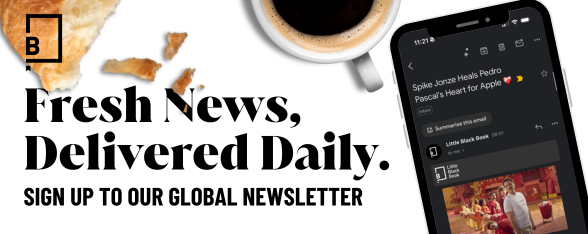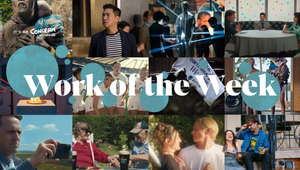
Data and Intuition: How Deliveroo Navigated the Covid Crisis

On the face of it, Deliveroo is one of the businesses that would seem to be ideally placed to thrive during the peak of the Covid crisis. A delivery platform when people were stuck at home, reluctant to head out to shop for food. An ecommerce platform at a time when even those people who had resisted shopping and paying digitally were moving online. And a facilitator for small businesses at a time when small businesses were struggling.
All that’s true. But even Deliveroo faced disruption and challenges to its model and core business. Yes demand was high, but at the very beginning of lockdown many of its restaurants were closed – and buying behaviour changed overnight.
For Inés Ures, who was until a few weeks ago CMO at Deliveroo, all of the tools that would normally help guide her were out of reach. She’s speaking at the Festival of Marketing event https://www.festivalofmarketing.com/speakers/ines-ures and that has given her the chance to pause and reflect after many months of whirlwind work.
At the very start of the pandemic, a data-driven business suddenly found itself grasping for a path forward in a data void. “At the beginning of the pandemic, we didn't really have any data. No one had any data. So we focused on doing what we do best, which is trying to connect consumers with restaurants,” says Inés. “But the reality is that although consumers really wanted to order food, restaurants were closed. So it was very difficult to actually satisfy the consumer demand, because we didn't have those restaurants.”
Indeed, as a marketer, Covid has been an unexpected lesson in what data can do and what it can’t. What the experience has reinforced is that in unprecedented times a marketer must listen to not only data but to their gut – and to their colleagues. And in this situation, Inés found that some of the most relevant, vibrant and actionable insight came from some of the most junior marketeers at the company. A humbling and refreshing lesson, indeed.
“You don’t know anything, you need to take a bet,” says Inés of the decision making process during the early days of the pandemic. “It’s probably the purest marketing exercise. You need to get a sense of where the belief is. Some businesses decided to postpone campaigns. Other businesses (like us) cancelled campaigns. I don’t know if we will ever see them. Maybe my colleagues who are still there will decide to launch next year… but the world will be a different place next year, so that campaign probably won’t make sense next year.
“It was a mix of consuming a lot of data but it was also an intuition exercise; we know our market, our GMs know our markets. We spoke to our GMs and there was a lot more local work happening than usual. The social media managers and the most junior people in the marketing teams were actually doing a better job because they were the ones that were closer. The closer you are to the consumer, the more fascinating it becomes.”
However, as the pandemic unfolded and lockdowns trundled on, patterns started to emerge. Deliveroo, a business that had grown up around hip city centre eateries found that its consumer base, who had reliably ordered working lunches to offices, had drifted to metroland, suburban and countryside bases – areas where Deliveroo had less of a foothold.
“On this matter of supply and demand, at first, all restaurants closed, but then they reopened and obviously, the demand was through the roof. Then what happened actually, is that, although that was the case, our restaurant base was just not good enough. Why? Because consumer behaviour had completely changed. So consumers didn't live in central London anymore, they were basically the outskirts of the city. Same in Paris, same in every other single place,” explains Inés. “So, we started identifying different places around London, with data, and figured out what were the types of restaurants that we needed to find so that we could supply what we were offering to our to our consumers now.”
The nuts and bolts mechanics of the Deliveroo and its network of restaurants and riders was one side of a very difficult dance – the other was stepping delicately around the mood of consumers. To understand this, the Deliveroo teams around the world delved into consumer research, rather than ‘hard data’, in order to proceed with empathy.
“We tapped into the consumer mood and consumer behaviour to make sure that we were being reasonable and compassionate with the type of marketing campaigns that we were launching. We obviously stand for something and believe in certain things, but, also, we were aware that it was a very, very delicate time in people's lives. Many people were losing their jobs, they had their business close, they faced uncertainty, some people couldn't even access food.”
Thankfully, Deliveroo’s marketing teams in Europe and the Middle East didn’t have to proceed completely blindly – they had the experience of the teams in Hong Kong and Singapore to draw from. Having already navigated SARS, the East Asian side of the business also had a three month head start and were coming out of the peak of the first wave just as the Western locations were bracing themselves for things to get bad. Hong Kong and Singapore had already devised best practice and guidance for restaurants and riders in safely handling food – and they’d also built up an arsenal of comms material.
“They basically set the standard for the rest of the organisation on what's supposed to be done, because they have more knowledge, plus they have had to face it before. We were supportive, but they are very autonomous and they came up with everything. So when we had to do it [in Europe and Middle East], we had actually already developed everything for them creatively, we had all the assets, for example, we only had to translate them. And that allowed us to move much faster.”
The team also had a set of guiding principles to guide the way. Founder William Shu's commitment to the network of restaurants and riders was one - everything the brand did had to keep the people and businesses that make up the network safe. Moreover the decision to partner up and contribute to society was driven by what was important to those people - for example delivering half a million free meals to NHS workers was something the network felt strongly about. Given the variety between different markets in terms of the intensity of the pandemic and severity of government restrictions, local teams were also free to act autonomously.
It’s all been one of the wildest and busiest periods of Inés’ career – and one that has drawn on her well of empathy and understanding as well as her skill as a marketer. Having to conduct this orchestra of creativity via video conferencing and collaborating with agency partners going through their own strife and stress has made the interconnectedness of the industry more alive to her than ever. As Inés takes her next steps, exploring new opportunities, she believes that, if anything this experience has reaffirmed her belief that marketers need to support each other and respect and empathise with their agency collaborators.
“I think the most important thing is to listen to our customers and listen to our network of restaurants and rides, and also our suppliers,” says Inés. “We need each other in this system of marketing. We couldn’t do it without our agencies and without our data partners and our research partners. My last message to the marketing community is we strongly need to help each other. During a crisis, the marketing department is always going to be the department or area of business that suffers the most and this is going to have an impact on our agencies and partners. I’ve seen the marketing community pull together more than ever, reacting and pulling together at events like the Festival of Marketing event.
“It is so inspirational to see people be stronger together and I just want to say to the marketing community to keep on helping each other. After a crisis, that’s when marketing is more necessary than ever, that’s when you need to start building great businesses.”















